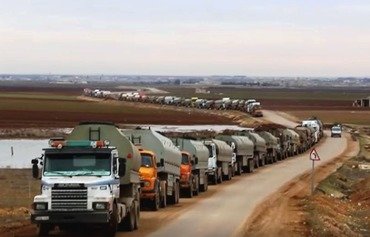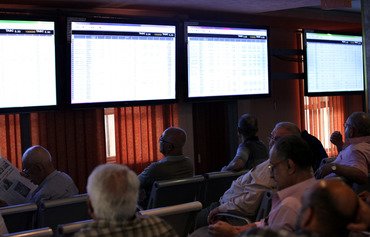The "Islamic State of Iraq and the Levant" (ISIL) has begun enforcing the use of its own currency for certain transactions, such as the sale of oil, but experts say the measure is merely an attempt to make up for its continuing financial losses.
The currency, the "gold dinar" as the group calls it, is currently being used in some areas in Syria and Iraq, but has no value other than the value of the metal used in minting it, experts told Diyaruna.
The Syrian Observatory for Human Rights (SOHR) published a report July 9th saying that ISIL has imposed the use of the gold dinar in all transactions with oil traders.
According to the report, ISIL sells each dinar, which weighs about 4.5 grammes, to currency exchange shops for $190.
ISIL announced in November 2014 that it was minting its own coin currency -- various denominations in gold, silver and copper -- for use in areas under its control in Syria and Iraq, but only recently have the coins been in any real use.
The currency has "no real market value at all because recognised global currencies are subjected to specific financial and banking standards by the global financial system" and therefore has no value other than the value of the metal used in minting it, said Cairo University professor of international economics Nasser al-Assiouty.
The main reason ISIL is forcing traders to use this currency is "to wring out as much financial liquidity as possible after many of its funding sources, both external and from illicit trading, were cut off", he said.
By doing this, the group "actually seeks to impoverish the areas under its control because the gold and other metals used in minting this currency were obtained in the looting of [...] private and government banks that held a large number of gold bullions, in addition to the precious metals the group extracted from citizens in various ways," al-Assiouty told Diyaruna.
ISIL losing control
By imposing this currency on transactions, ISIL seeks to "give the impression that it is not shaken by the military blows it is being dealt in Syria and Iraq and to send a message to its supporters [...] that it is still effectively in control and implementing what it had promised, namely to replace global currencies with an Islamic dinar", said Sami Gheit, a researcher with al-Sharq Centre for Regional and Strategic Studies.
Although ISIL announced it would mint its own currency over a year ago, the group had not taken the practical steps to do so until recently, after it lost vast areas that were under its control, Gheit told Diyaruna.
Another motive for ISIL to implement this currency at this moment, he said, was to secure cash to pay salaries, which it had cut in half months ago when its financial resources dwindled.
Forcing oil traders to deal in the gold dinar now "is but a prelude to what it will do soon, which is to force all citizens to use its currency, which would yield enormous sums for [ISIL] and tighten its grip on all commercial and financial transactions conducted in its areas", he said.
Exploiting oil trade
ISIL's treasury "diwan" in al-Raqa "informed all currency exchange and money transfer shop owners that they must procure ISIL gold dinars to distribute them to oil traders, as happened in the city of Deir Ezzor and its rural areas", said Wael Mustafa, an entrepreneur and native of al-Raqa who preferred to use a pseudonym out of fear for his safety.
Mustafa told Diyaruna that these shops are buying the dinar for $190 and selling it to oil traders for $191-197, exploiting the traders' need for the dinar and its unavailability in large amounts.
ISIL "informed oil traders that they need to acquire the dinar from currency exchange shops and disallowed them form acquiring it directly from the group, in an effort to entice citizens to buy it as an extra source of profit", he said.

![Primitive oil refining centres (burners) in al-Hasakeh are used to filter oil that the 'Islamic State of Iraq and the Levant' sells to local merchants. [Photo courtesy of Mohammed al-Beik]](/cnmi_di/images/2016/07/27/5924-Syria-Hasakeh-oil-600_384.jpg)





